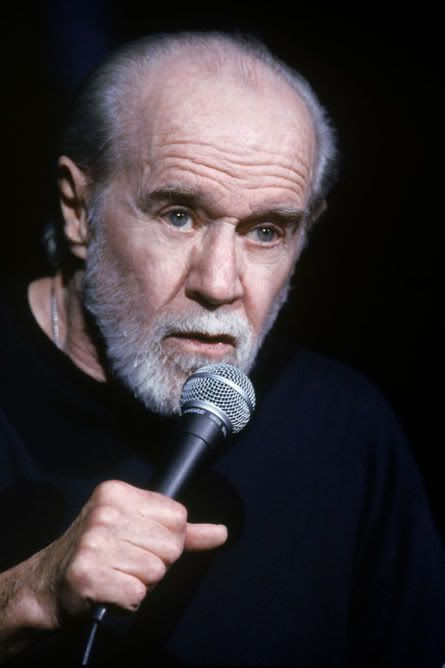
Comedian George Carlin died of a heart attack yesterday at age 71. He’ll be remembered not only as an iconoclastic, irreverent chronicler of the human condition, but also the focal point of an interesting free-speech case.
In 1973, New York radio station WBAI-FM played a notorious recording of Carlin’s in which he dissects (at length) the seven words that can't be said on television. A man driving with his young son heard the routine and complained to the Federal Communications Commission, which fined WBAI.
The station then sued the FCC. The case eventually went to the U.S. Supreme Court, which, in a 5-4 decision, found in favor of the FCC’s sanction. (The case is Federal Communications Commission v. Pacifica Foundation et al.)
Although the court ruled against WBAI, Carlin continued to be a strong proponent of free speech and freedom from government meddling -- and ironically, some of those "bad words" can now be found on television with little effort.
In 1973, New York radio station WBAI-FM played a notorious recording of Carlin’s in which he dissects (at length) the seven words that can't be said on television. A man driving with his young son heard the routine and complained to the Federal Communications Commission, which fined WBAI.
The station then sued the FCC. The case eventually went to the U.S. Supreme Court, which, in a 5-4 decision, found in favor of the FCC’s sanction. (The case is Federal Communications Commission v. Pacifica Foundation et al.)
Although the court ruled against WBAI, Carlin continued to be a strong proponent of free speech and freedom from government meddling -- and ironically, some of those "bad words" can now be found on television with little effort.
The case that Carlin helped spark is a staple of First Amendment curricula at many law schools. In fact, today we were reading about an attorney in Connecticut who teaches a communications law class. He features Pacifica, and then brings the course to a close by choosing a student to stand and recite the seven words to the rest of the class.

No comments:
Post a Comment